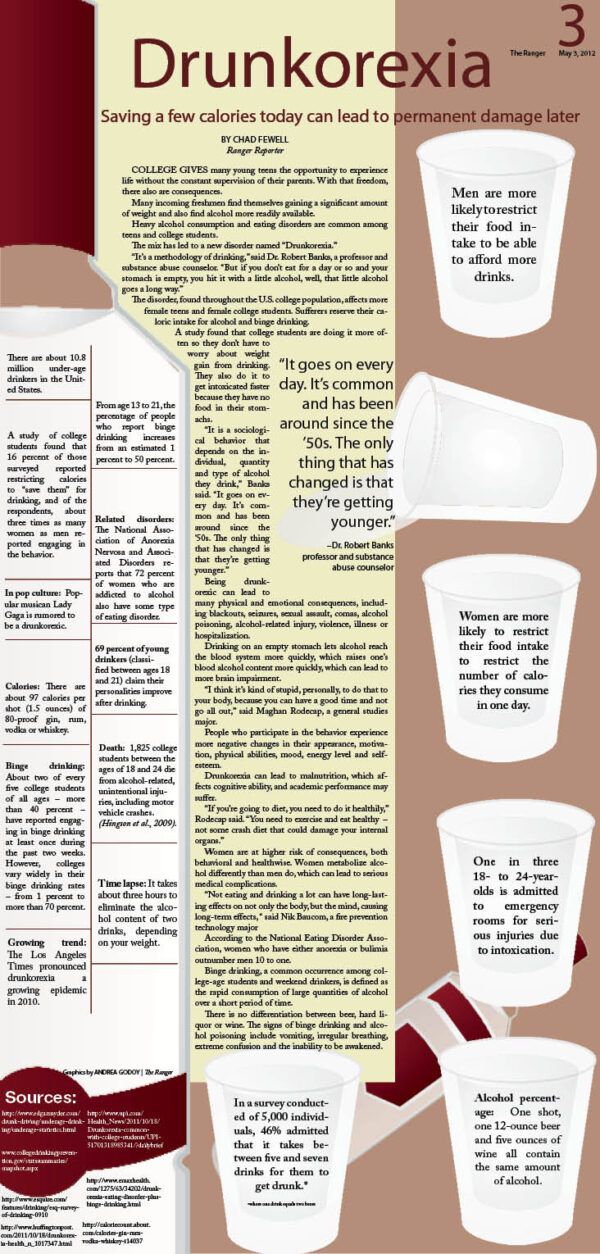
By Chad Fewell | Ranger Reporter
COLLEGE GIVES many young teens the opportunity to experience life without the constant supervision of their parents. With that freedom, there also are consequences.
Many incoming freshmen find themselves gaining a significant amount of weight and also find alcohol more readily available.
Heavy alcohol consumption and eating disorders are common among teens and college students.
The mix has led to a new disorder named “Drunkorexia.”
“It’s a methodology of drinking,” said Dr. Robert Banks, a professor and substance abuse counselor. “But if you don’t eat for a day or so and your stomach is empty, you hit it with a little alcohol, well, that little alcohol goes a long way.”
The disorder, found throughout the U.S. college population, affects more female teens and female college students. Sufferers reserve their caloric intake for alcohol and binge drinking.
A study found that college students are doing it more often so they don’t have to worry about weight gain from drinking. They also do it to get intoxicated faster because they have no food in their stomachs.
“It is a sociological behavior that depends on the individual, quantity and type of alcohol they drink,” Banks said. “It goes on every day. It’s common and has been around since the ’50s. The only thing that has changed is that they’re getting younger.”
Being drunkorexic can lead to many physical and emotional consequences, including blackouts, seizures, sexual assault, comas, alcohol poisoning, alcohol-related injury, violence, illness or hospitalization.
Drinking on an empty stomach lets alcohol reach the blood system more quickly, which raises one’s blood alcohol content more quickly, which can lead to more brain impairment.
“I think it’s kind of stupid, personally, to do that to your body, because you can have a good time and not go all out,” said Maghan Rodecap, a general studies major.
People who participate in the behavior experience more negative changes in their appearance, motivation, physical abilities, mood, energy level and self-esteem.
Drunkorexia can lead to malnutrition, which affects cognitive ability, and academic performance may suffer.
“If you’re going to diet, you need to do it healthily,” Rodecap said. “You need to exercise and eat healthy – not some crash diet that could damage your internal organs.”
Women are at higher risk of consequences, both behavioral and healthwise. Women metabolize alcohol differently than men do, which can lead to serious medical complications.
“Not eating and drinking a lot can have long-lasting effects on not only the body, but the mind, causing long-term effects, “ said Nik Baucom, a fire prevention technology major
According to the National Eating Disorder Association, women who have either anorexia or bulimia outnumber men 10 to one.
Binge drinking, a common occurrence among college-age students and weekend drinkers, is defined as the rapid consumption of large quantities of alcohol over a short period of time.
There is no differentiation between beer, hard liquor or wine. The signs of binge drinking and alcohol poisoning include vomiting, irregular breathing, extreme confusion and the inability to be awakened.


Leave a Reply